Introduction
Taxes are often one of the most complex and stressful aspects of running a business or managing personal finances. From understanding ever-changing regulations to filing accurate returns, many individuals and organizations struggle with compliance. That’s why tax reporting support has become a core service offered by accounting firms, financial advisors, and modern SaaS platforms.
But not all tax support is created equal. Some solutions offer only basic document preparation, while others provide full-service compliance, real-time reporting, and strategic planning insights.
In this blog, we’ll cover what tax reporting support typically includes, why it matters, and how businesses and individuals benefit from structured tax services.
1. Why Tax Reporting Support Matters
1.1 Compliance with Regulations
- Tax codes vary by jurisdiction and change frequently.
- Professional support ensures reports are accurate and meet regulatory standards.
1.2 Avoidance of Penalties
- Filing errors or missed deadlines can lead to audits, fines, or interest charges.
- Reporting support reduces compliance risks.
1.3 Time and Efficiency Gains
- Handling taxes manually is time-consuming.
- Automated tools and expert services free up resources for core business activities.
1.4 Strategic Insights
- Tax reporting isn’t just compliance—it reveals cash flow trends, deductions, and optimization opportunities.

2. Core Services in Tax Reporting Support
2.1 Data Collection and Organization
- Consolidating receipts, invoices, payroll, and bank statements.
- Categorizing expenses into tax-compliant formats.
2.2 Preparation of Financial Statements
- Balance sheets, income statements, and cash flow statements.
- Forms the foundation of accurate tax filings.
2.3 Filing Support
- Assistance with federal, state, and local returns.
- Electronic filing options with confirmation and tracking.
2.4 Compliance Monitoring
- Regular updates on new tax laws or reporting requirements.
- Alerts for upcoming deadlines.
2.5 Audit Preparation
- Documentation support in case of audits.
- Organized records make regulator interactions smoother.
3. Technology in Tax Reporting Support
3.1 Cloud-Based Accounting Systems
- Tools like QuickBooks, Xero, and FreshBooks provide automated tax reporting features.
3.2 AI-Powered Categorization
- Machine learning auto-sorts expenses into correct tax categories.
3.3 Real-Time Dashboards
- Businesses can track taxable income, deductions, and liabilities throughout the year.
3.4 Integration with Payroll and Banking
- Direct sync with payroll systems and bank feeds reduces manual errors.
4. Support for Different Segments
4.1 Small Businesses
- Focus on quarterly estimated taxes, deductions, and simplified filing.
4.2 Enterprises
- International tax compliance, transfer pricing, and detailed reporting.
4.3 Freelancers and Contractors
- 1099 forms, expense deductions, and self-employment taxes.
4.4 Individuals
- W-2/1099 filings, deductions, and credits.
- Specialized support for investments, rental income, or inheritance.
5. Benefits of Outsourced Tax Reporting Support
- Accuracy: Reduced errors with expert review.
- Efficiency: Automation plus human oversight saves time.
- Scalability: Services adapt as businesses grow.
- Peace of Mind: Confidence in compliance and readiness for audits.
6. Case Example
A mid-sized e-commerce business struggled with quarterly estimated taxes due to high transaction volumes. By adopting a cloud-based reporting system with CPA oversight:
- Automated categorization reduced manual work by 60%.
- Quarterly reports were prepared in real time.
- Company avoided penalties that had cost them $15,000 the previous year.
7. Advanced Tax Planning and Strategic Support
7.1 Proactive Tax Strategy
- Tax support isn’t just reactive filing—it’s year-round planning.
- Professionals analyze income trends and future projections to recommend actions before deadlines.
7.2 Identifying Deductions and Credits Early
- Monitoring expenses throughout the year ensures no eligible deductions are missed.
- Examples: R&D tax credits, energy-efficient equipment credits, or home office deductions.
7.3 Tax-Efficient Investment Strategies
- For individuals and businesses with investments, advisors recommend asset allocation strategies to minimize taxable events.
7.4 Multi-Jurisdictional Planning
- Enterprises operating across states or countries require planning for transfer pricing and cross-border tax treaties.
8. Integration with Broader Financial Strategy
8.1 Cash Flow Optimization
- Real-time tax reporting gives visibility into future liabilities, helping businesses manage working capital.
8.2 Budget Forecasting
- Integrated tax data informs accurate financial forecasts for decision-making.
8.3 Mergers and Acquisitions Support
- Tax reporting teams assist with due diligence, ensuring compliance in acquisition targets.
8.4 Retirement and Succession Planning
- Tax planning supports long-term wealth transfer strategies for business owners and individuals.
9. Technology Trends Shaping the Future of Tax Support
9.1 AI-Enhanced Predictive Analytics
- AI tools predict tax liabilities months ahead, allowing for proactive planning.
9.2 Blockchain for Tax Records
- Immutable ledgers provide tamper-proof audit trails for regulators and auditors.
9.3 API-Driven Integrations
- Tax platforms seamlessly connect with ERP, CRM, and payroll systems.
9.4 Digital-First Compliance Portals
- Governments worldwide are shifting to e-filing and digital audit systems, requiring businesses to integrate technology.

10. Tailored Support for Niche Industries
10.1 E-Commerce and SaaS
- Support for complex sales tax rules (e.g., U.S. state nexus requirements).
10.2 Healthcare and Nonprofits
- Specialized compliance for grants, donations, and medical deductions.
10.3 Gig Economy and Creators
- Tax platforms designed for freelancers and influencers handling multiple income streams.
10.4 International Businesses
- Expertise in VAT, GST, and cross-border compliance.
11. Risk Management and Compliance Safeguards
11.1 Audit Readiness
- Support teams maintain organized, audit-ready documentation at all times.
11.2 Regulatory Updates
- Automatic updates to software ensure compliance with changing tax codes.
11.3 Data Security
- Encrypted storage and strict access controls protect sensitive financial data.
11.4 Legal and Ethical Compliance
- Certified professionals follow ethical guidelines and protect client confidentiality.
12. Outsourcing vs. In-House Tax Support
| Aspect | Outsourced Support | In-House Team |
|---|---|---|
| Cost | Lower upfront cost for small businesses | Higher salaries and benefits |
| Expertise | Access to specialized knowledge | Deep understanding of your business |
| Scalability | Can scale with business growth | May require hiring/training |
| Technology | Advanced platforms included | May require separate investments |
13. Actionable Checklist for Choosing Tax Reporting Support
- Identify your tax complexity (local, multi-state, or international).
- Evaluate whether you need planning, filing, or full-service reporting.
- Assess the technology used—cloud-based, AI-powered, and secure.
- Confirm certifications (e.g., CPA, EA) for any professional advisors.
- Request sample reports or dashboards to gauge clarity and detail.
- Consider integration with your accounting and payroll systems.
- Evaluate ongoing communication and advisory support, not just year-end filing.
14. Case Studies
14.1 SaaS Startup Scaling Globally
- Adopted AI-powered tax software integrated with Stripe and QuickBooks.
- Reduced manual reconciliation by 75% and avoided penalties in new jurisdictions.
14.2 Freelance Graphic Designer
- Partnered with a virtual tax advisory service.
- Gained proactive quarterly reminders and maximized deductions for equipment and travel.
14.3 Enterprise Manufacturer
- Used outsourced tax reporting during an M&A process.
- Ensured compliance across five countries and improved negotiation leverage.
Conclusion
Tax reporting support has evolved from simple year-end filing to a strategic, technology-driven service that powers compliance, efficiency, and financial planning. Businesses and individuals leveraging modern tax tools and professional expertise gain peace of mind, risk reduction, and a competitive edge.

In 2025 and beyond, expect even greater automation, AI-driven insights, and integrated financial dashboards to make tax reporting a seamless part of business strategy. Whether you’re a freelancer juggling 1099s or a multinational enterprise, choosing the right tax support now sets you up for long-term success.
FAQs
1. Do you support international tax reporting?
Yes—modern providers handle multi-jurisdictional compliance, including VAT, GST, and cross-border treaties.
2. Can you integrate with my existing accounting software?
Most tax platforms sync directly with QuickBooks, Xero, or ERP systems.
3. How do you ensure my data is secure?
Providers use bank-level encryption, strict access controls, and compliance with privacy regulations like GDPR.
4. Do you provide audit assistance?
Yes—tax teams maintain documentation and assist throughout audits.
5. Can you help with strategic tax planning?
Absolutely—many services provide year-round planning to optimize deductions and cash flow.
6. What industries do you specialize in?
E-commerce, SaaS, healthcare, gig economy, and multinational enterprises are common focus areas.

